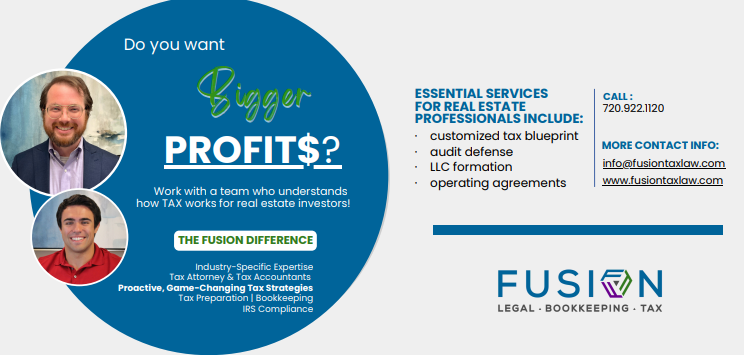Leveraging the power of a vacation home
Do you need an escape? Considering a second property? Good news from the tax corner: a properly used vacation home or condo does not have to complicate your life or require that you develop a closer relationship with your tax planner (though I’d love to get to know all of you better).
Full disclosure – depending on how you use the property, you typically may need to worry about vacation home tax rules, passive loss rules, or entertainment facility rules. However, the focus of this article is to assist you in simplifying and using the property for two purposes only:
- personal pleasure
- business lodging
Sound nice? Keep reading…
Personal use does not nullify business use
Members of Congress famously use the tax code to their advantage – they deduct the business part of their Washington DC homes because they use them for business travel. Senator Bob Dole, while serving in the Senate, once stated that the vacation-home rules in the tax code do not disallow the business expenses for travel away from home. Put another way, you can have a vacation home that you use for both business and personal purposes, and the tax code recognizes that the personal use will not nullify the business use.
For example, let’s say that you have a beach house, and you use it for overnight lodging for business-related travel 60 times throughout the year. If you have no personal or otherwise rental use of the beach home, your beach home is a 100% business asset and that means you can deduct costs associated with it.
That’s the most straight forward situation. However… let’s say, instead, that you use the beach house 60 nights for business and 40 nights for personal use. The property is now a 60% business asset.
Important to note in these examples: It is the business use that makes the costs deductible. So the business-based justification for the travel needs to be solid. This is where you may wish to touch base with your tax professional to ensure your reasoning will jive with the IRS.
Rental use changes things
Let’s add a wrinkle to the mix. Rather than letting the beach house sit vacant when you’re not using it, let’s say you decide to rent it out. This rental activity is what changes the landscape, and not in your favor. You could trigger the need to split costs between rental and personal use, thereby losing out on deductions. You could inadvertently classify the property as a rental or personal residence, with dire consequences to your tax bill. You could trigger passive loss rules and really open a can of worms.
The key to avoiding all of that headache is simple: rent the property for 14 days or less (for the entire year). The longstanding Augusta rule (yes – from the golf tourney) says you can rent your home for 14 days or less and not report the rental income on your tax return.
Other gotchas
Don’t entertain. There is an absolute bar in the tax code that negates all deductions when there is any entertainment at the property. (Hint: business meals are not entertainment, so save any gatherings for your business use of the beach house and deduct those meals).
Don’t be charitable. This goes against every moral fiber in my body, but the tax code has a double gotcha for these deductions. Let’s say you donate the use of your beach house to a charity for 1 week in their silent auction. Well first, the week counts as personal use by you of the beach house. Then second, you cannot deduct the donation of the beach house. In other words, this type of “donation” is not deductible, anyway, so you may as well not donate the time, since it will end up counting toward your “personal use” bucket.
Ownership. If you happen to own a beach house in your personal name and you also operate as a sole proprietorship or LLC taxed as a proprietorship, just treat the business percentage as a business expense on Schedule C. If, on the other hand, you operate as a corporation or an LLC taxed as a corporation, submit an expense report to the corporation and reimburse yourself. Do not, however, rent the property from your corporation.
Takeaways
Document a strong business purpose for your travel and use of the second home. The nexus of your use and the business purpose should be justifiable and tailored. And, of course, documentation is critical because if the IRS ever decides to take a look, you need to be able to prove your position on the return.
If you operate a business and have a second home, don’t hesitate to put it to use for your tax picture. Likewise, if you simply rent the property for 14 days or less, pocket the rent. Suffice to say that a second home doesn’t need to be limited to simply increasing your itemized deductions – there are strategies you can harness to your tax advantage.
And as always, if any of this has left you with questions, it’s never a bad idea to check in with your tax advisor to be certain. Happy second homing!

